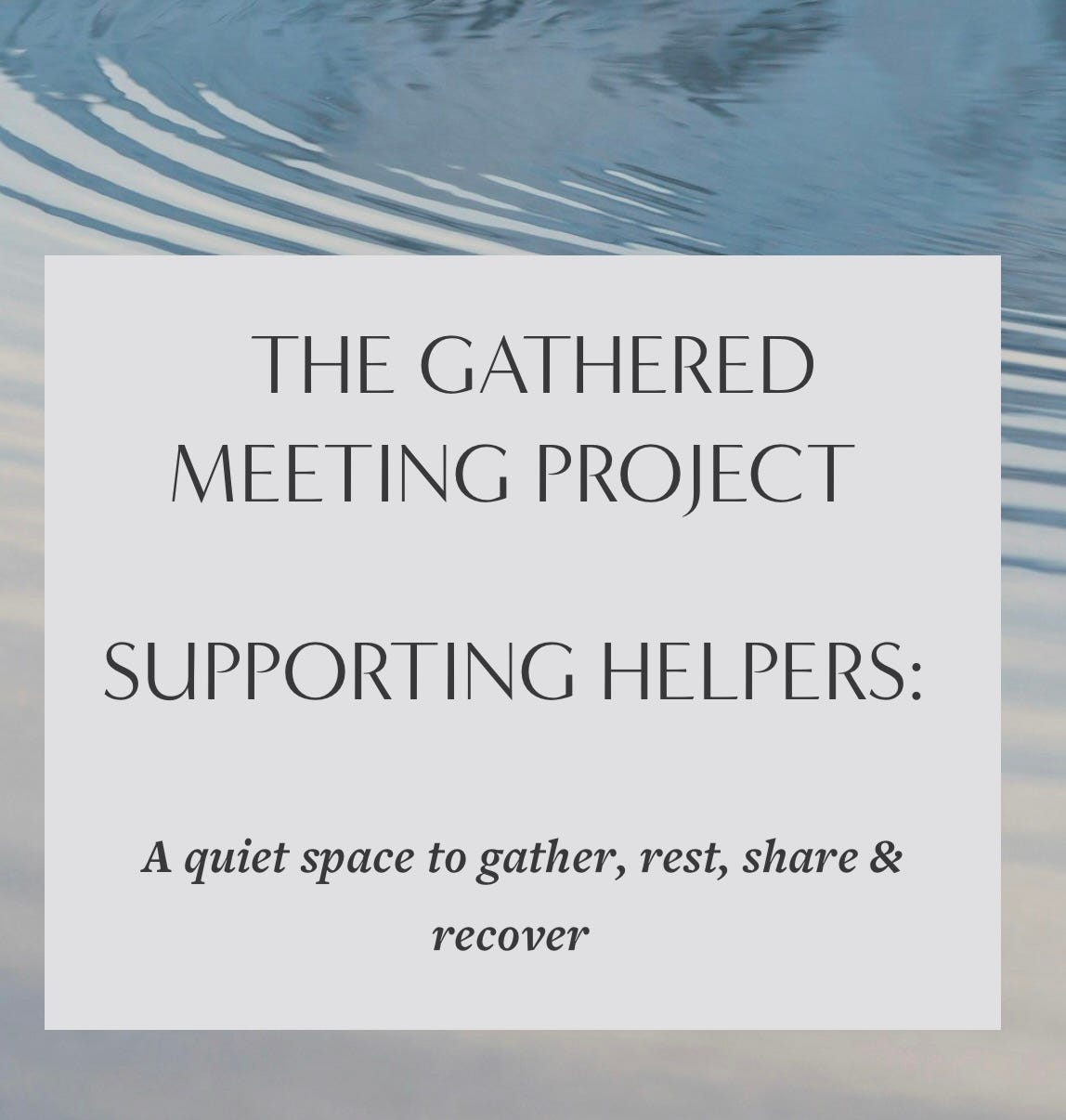What is a Gathered Meeting?
A Gathered Meeting is a secular group model derived from structures that are commonly used in Quaker meetings, and in other community groups such as Parker Palmer’s Circle Groups, 12 step programs, and Talking Stick councils. Martha Crawford, who has convened this project, spent several years as an assistant clerk at the 15th Street Friends Meeting in NYC as well as several decades in group work and community organizing. She has found this model to be particularly effective for structuring well-boundaried and reflective community spaces.
This process involves sharing questions, queries, and concerns that the group will contemplate together over the course of an hour through structured subjective sharing and periods of silence.
Above all, a Gathered Meeting is a space to drop in, sit still and in silence together, with an opportunity to draw on our shared strengths and resources, grieve and celebrate together when necessary, and stay grounded in the work in front of us.
We are building a network of facilitators who will be hosting online gathered meetings.
Who are “Helpers”?
Fred Rogers famously directed children in the throes of crises to “look to the helpers,” but as adults, we are not only the helpers ourselves, we must remember that “helpers” are vulnerable too, and in need of spaces to receive care and care for each other.
These meetings are organized to support professional and natural helpers (caretakers, parents, activists, teachers, medical and mental health care providers, community organizers, advocates - anyone in danger of burnout, over-extension or demoralization) as we negotiate a period of intense political and economic challenge and chaos ourselves, while providing logistical support and emotional mutual aid to our wider communities.
Those who have assumed helping roles in the community are not only attempting to assist others through this poly-crisis, we are negotiating the same challenges ourselves.
“Helpers” of all kinds are in danger of their own psychological injury through over-extension, and through vicarious and direct trauma.
Facilitation:
In addition to the organization and administration of their own meeting spaces, the facilitator’s primary role is to help the gathered meeting understand its established norms and practices and to adhere to them.
Facilitators will also craft queries and prompts for the gathered community to consider together.
We ask those who attend to support our facilitators’ labors through financial contributions
NOTE: Facilitators here are not acting as mental health professionals. They are community and peer-group facilitators
Pay-What-You-Can Contributions:
The suggested contribution ranges from $25 to $5.
No one will be turned away due to financial hardship.
It is hoped that those who are financially comfortable will consider contributing more to help sustain these financially inclusive gatherings
More Information:
Attenders may drop in as needed, attend regularly, intermittently or only once. Or attend different meetings with different facilitators on different days or times.
This group model and our norms and practices are not proprietary, and anyone is free to review, copy, edit, or modify our meeting norms and practices for their own uses.
If you click the button below you can review our Gathered Meeting norms, and download free pdf if you like.
New facilitators will be welcomed oriented to these practices regularly whether or not they choose to host a meeting as part of this project.
You will also be able to sign up to receive an email with a link to our Meeting Calendar.
We hope you will join us as we breathe, reflect and find our way together through a challenging era.




